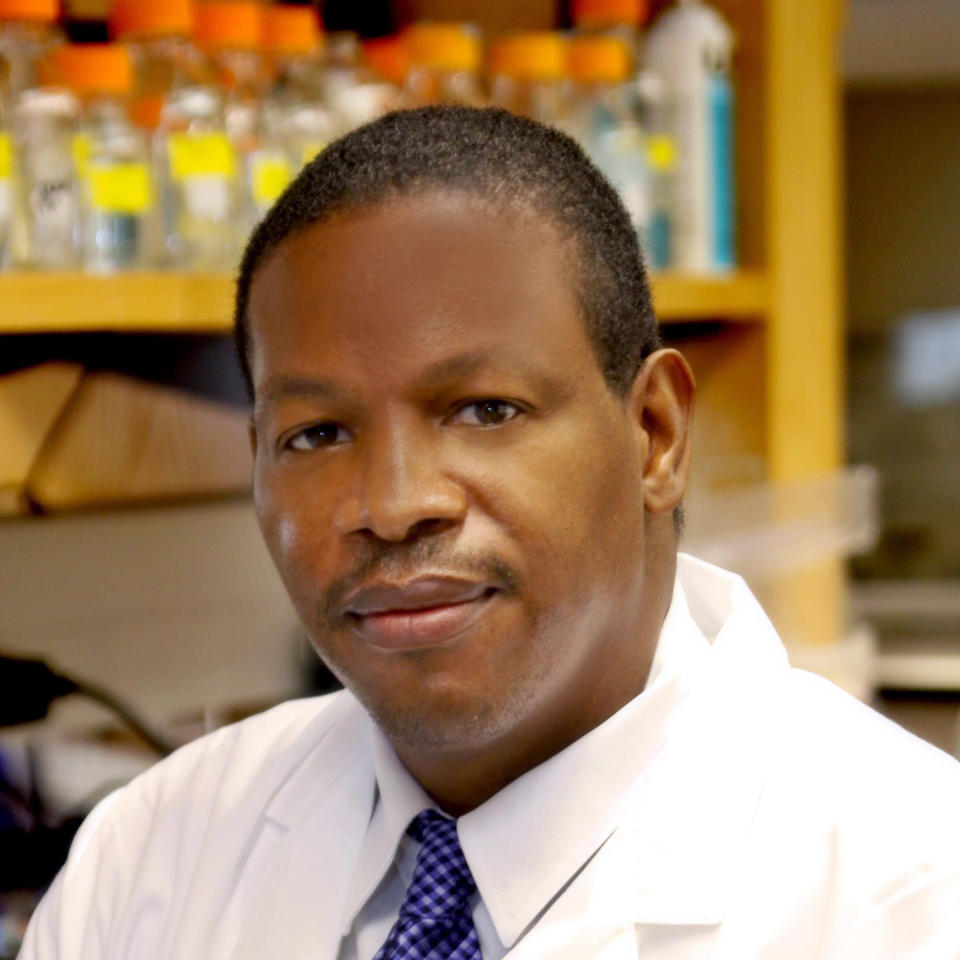Historically black college gets federal boost in testing coronavirus drug
It is a historic alliance: Meharry Medical College is partnering with the National Institutes of Health to test the historically black college’s antiviral drug, which it hopes will eradicate COVID-19.
The collaboration represents a vital relationship in the overall fight for the public safety of African Americans, whose rate of infection and death from the coronavirus has been disproportionately higher than other racial groups in the country, according to health care leaders.
“This has been growing for years,” Dr. John Maupin, a former president of Meharry and the Morehouse School of Medicine, told NBC News. “And it’s extremely important when there is a disease or condition that disproportionately impacts African Americans that they trust the people who are looking for the cures.
Meharry’s focus, Maupin said, has always been on the impact that diseases have on African Americans. “And many times we have to talk about the cultural factors and social factors and other factors that have to be considered when doing research to develop a cure or preventative response that will help African Americans,” he added. “So, these institutions have been at the forefront of that. And support from the NIH exponentially improves the chances of doing great work.”
Meharry joins a frantic race for an antiviral drug that has intensified globally, as more than 5.4 million people have been infected and more than 340,000 have died worldwide.

Dr. Donald Alcendor, an associate professor at Meharry and a scientist, told NBC News that he and his team at the college have developed a reagent, called MRCV-19, designed to prevent the devastating effects of COVID-19. The antiviral drug has been “synthesized,” meaning it has been produced and is prepared to begin the arduous trek from early trial to human trial to market.
“I’m thinking this may be something special,” Alcendor said. “What can you take if you test positive for the virus? This is our option.”
MRCV-19 is primarily intended for those infected with the coronavirus before it causes damage, Alcendor said. It would sit in the body for up to five days and attack the RNA—ribonucleic acid, a nucleic acid present in all living cells— before it would have a chance to wreak havoc on the lungs, COVID-19’s modus operandi.
“It would defeat the purpose of the virus,” he said. “Inflammation and the disease itself would be reduced.”
It will be tested at the NIH in human lung cells in the “near term,” an NIH official said.
Support from the NIH, along with Meharry’s rich tradition, has allowed Dr. James E.K. Hildreth, the college’s president, to attract a team of scientists that concentrates on drug discovery and development.

“Meharry is one of many institutions taking advantage of the technology at NIH to accelerate its research on a potential therapeutic drug against COVID-19 virus,” Hildreth said. “Doing so greatly facilitates our research and lowers the overall cost of the research as well.”
“Over the last 20 years,” Maupin said, “there has been a lot more investment from the NIH in minority-serving institutions, which they called of ‘emerging excellence.’ What was lagging was having some of the key resources that many other institutions had. It was not whether they had the intellectual talent, but whether they had some of the infrastructure and support system needed to carry their science forward.”
“They were able to recruit some amazing scientists whose major focus is on diseases that disproportionately affect African Americans,” he said. “This cadre of great scientists often gets overlooked, even though their science continues to be great.”
The president of the American Medical Association, Dr. Patrice Harris, said that HBCU participation in the search for COVID-19 treatments is invaluable in informing research and cures. “Like with any other crisis, we need the data and the science to drive decisions of treatment. So it’s exciting to have Meharry doing this work,” she said. “And I’m very excited to know of the partnership with an HBCU and the NIH exists because of the disproportionate number of African Americans COVID-19 is impacting.”

The NIH’s assistance also has brought to the forefront the excellence of black scientists, Maupin said. “HBCUs don’t have a lot of wealthy donors,” he added. “But their work puts a spotlight on their talent. It puts a spotlight on their purpose and it puts a spotlight on the continued re-investment in these institutions.
“Their work in COVID-19 is demonstrating again you must continue to put the investment in these institutions because they have some answers that will not only be helpful to the African American community, but to all Americans.”

